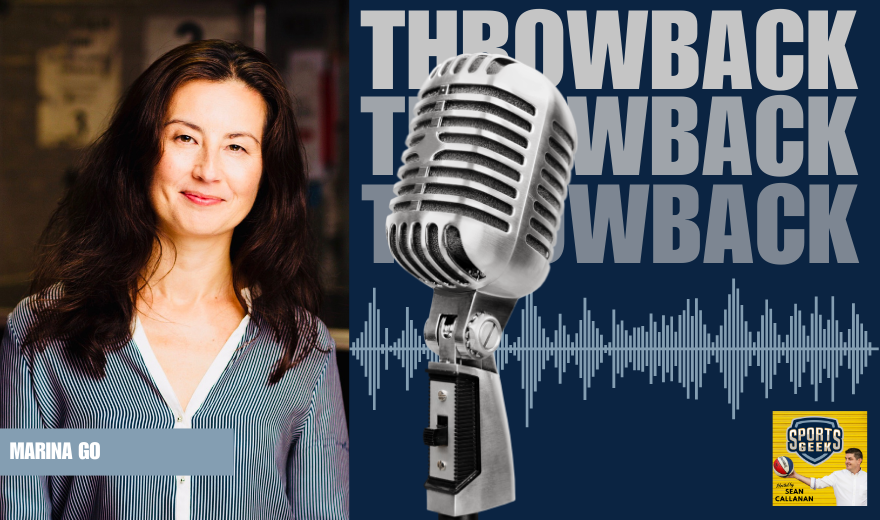This transcript has been lightly edited by AI
Sean: So one thing I wanted to ask again from your media background, how has the consumer of content and media changed in the last 15, 20 years, from print and magazine, and you're making sure when people were waiting to pick it up to now being always on, on demand, that kind of thing. How has that challenge and opportunity been tackled both in the traditional media sense, but even in sport or what's your take on how the consumer is changing?
Marina: I think the product development that changed everything in terms of consumer behavior is a smartphone. In the past, we relied on consumers to come to us. They found us, you could publish a magazine or a newspaper, you put it on sale somewhere, the consumer had to go there to buy it. Same with television, it was a platform. Basically by appointment. So you know what's on where you couldn't watch it at any other time. Maybe you could tape it. So now we've moved to a world where I can access anything I want any time of the day, no matter where I am in the world, via my smartphone. And that's transformed everything, which is why we're seeing in sport. With Super Netball this year, the netball live numbers just increased significantly. If it's an inconvenient time to watch television, it's never inconvenient to look at your phone. So you can be anywhere. We had lots of stories about people being at weddings on Saturday afternoons, they couldn't actually get to television or the game. So they were sitting in the church or reception watching things on their phone. That has transformed everything. It just means that we have to ensure that the product is good enough that a consumer will want to turn it on. Because we know that they can access it anywhere and they can, but we're competing with everything now, not just another newspaper or another magazine. When you're looking at competitive products and which Bauer and Pacific are about to go through that, it will no longer be a conversation about, is Woman's Day a new idea and competition because that's not their only competition. That's been the real game changer for media and for consumers.
Sean: And to me it's also just the myths being busted. Talking about Netball Live, as little as three years ago, people were saying, people aren't going to watch a game of sport on their phone. And, yes, they are. We were so wedded to the big screen TV. We all got bigger screen TVs and it's like, yes, but the convenience and now it's becoming the first port of call. I was talking to a grade one teacher who was doing stuff with some kids on a PC. They couldn't figure out how to use the mouse and the keyboard because, and they went, Oh, Oh, these keys are like my iPad. Their first port of call, their first device and their go to device is, is the phone and the swipe and the pinch and all that kind of stuff. So they just expect to be able to go, you know, Oh, I just click here and it's on.
Marina: And look, I think the interesting thing too, which I think nobody anticipated, certainly from the media's point of view, that everybody knew that the next generation, Gen Y, Z. Whatever is after that, that reaching them any other way except via the smartphone would be difficult. But if you speak to parents now, my parents are in their seventies and my dad rings me and he'll say, Oh, I just watched the netball. We were at something, but he watched it on his phone. So I think now it's actually infiltrated every generation. There may be a few that still hold out and don't like it. And eyesight can be part of that, but it is much more widespread. The uptake is enormous and we're seeing enormous gains from one year to the next, just in that particular medium.
Sean: And we are seeing the lawyers and the media rights negotiators catching up to that. We previously had rights deals where 12 inches were mentioned because that's how big the mobile tablet could be and you couldn't stream it. But now customer demand either via the products they've got, whether it's Netflix and Stan, they go, Oh, I hit the button. I hit this button, and then I hit that button. It's on my big screen. They're expecting the same in the sports space, which is going to change what the media rights deals look like, we're seeing more of them bundled together. The TV operators are saying, well, we want the digital piece. We want the mobile piece. And so it is changing the way the whole negotiations are happening. Gone are the days of, well, not quite in all markets, but, Oh, you can watch it here, but you can't cast it to your TV and that kind of stuff, because that's what people want.
Marina: Oh, no, absolutely.

